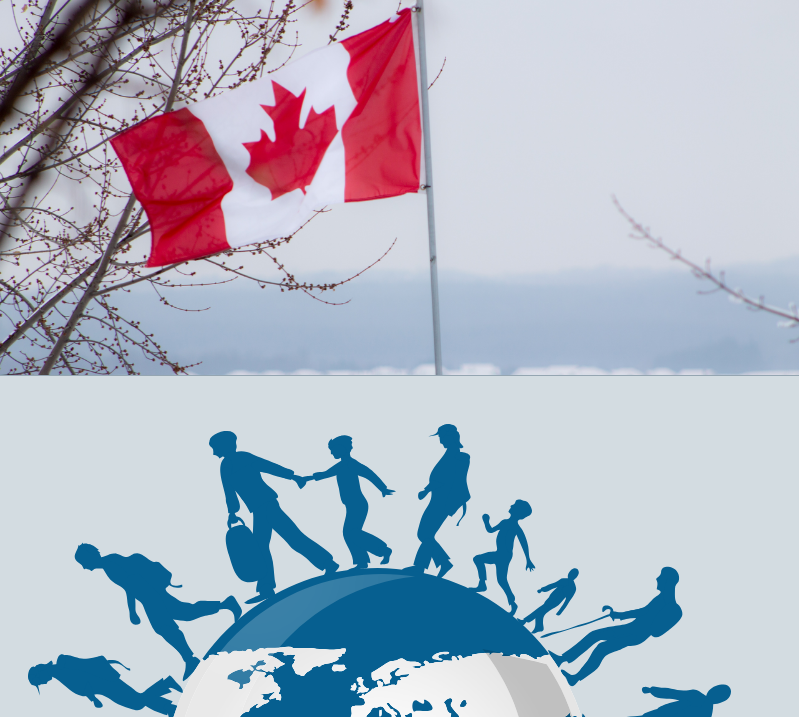The Canadian Government is accepting incomplete student permit applications from International Students. Study permit applications will not be refused because of missing documents due to COVID-19 pandemic and closures.
The COVID-19 pandemic has forced many visa application centres to close temporarily or limit their operations. As a result, applicants are unable to complete the essential components of their application: biometrics, medical examination, and submitting original travel documents.
Until further notice, IRCC offices will not refuse an application for non-compliance. IRCC officers will continue to request additional supporting documents or necessary actions (such as biometrics and medical exams) as part of the application process and will keep the applications open until documents are received or evidence is provided that action has been taken. The temporary measure will allow international students some flexibility in submitting study permit applications.
Overseas Study permit applications
IRCC is still accepting study permit applications from students who want to study in Canada. International students whose study permits were approved after March 18 will be sent a push notification advising them that they may not be exempt from temporary travel restrictions, and they should not make plans to travel to Canada until restrictions are lifted. Online studies at a Canadian Designated Learning Institution (DLI) will not hurt any future Post-Graduation Work Permit (PGWP) application for international students whose programs start in June or in the fall semester.
Study permit extensions (in Canada)
Due to school closures, some international students may be unable to obtain a letter of acceptance or proof of enrolment from their DLI. As a temporary facilitation measure, students applying to extend their status will be allowed to submit an extension application without a letter of acceptance or proof of enrolment. In lieu of the letter of acceptance, the applicant should submit a letter of explanation indicating that they are unable to submit the requested document due to their school’s closure. Once these documents become available, applicants should submit the documents using the IRCC Web form. If no documents are submitted by the time CPC-E is ready to process the application, the documents will be requested by the processing officer as per the instructions above. Students required to restore their status will also be able to submit an application without a letter of acceptance or proof of enrolment and should submit the documents once they become available using the IRCC Web form.
Compliance with study permit conditions
As a consequence of COVID-19, students who were studying in Canada prior to March 18, 2020 or whose programs of study began in May or June 2020 and whose programs of study are temporarily shifted to an online format will still be considered compliant with their study permit conditions if they remain enrolled at their DLI and continue to actively pursue their studies online. If a DLI closes permanently as a consequence of COVID-19, students in Canada should either enrol in a new program of study, change their status or leave Canada. For the purpose of assessing if a student is enrolled and actively pursuing their studies, any time taken to transition to a new DLI and program, change status or leave Canada should not exceed 150 days from the date the school closed. If the student does not intend to enrol in a new program of study and is unable to leave the country, they must apply for a visitor record or a work permit.
Student off-campus work authorizations
International students who have been forced to drop to part-time studies or take a break in their studies due to COVID-19 can continue to work on or off campus. They are still subject to the authorized number of hours they would have been permitted to work as a full-time student. For instance, full-time students during the winter 2020 semester who were forced to drop to part time and complete their courses via distance learning are authorized to work off campus for up to 20 hours per week during regular academic sessions and full time during the DLI’s regularly scheduled breaks.
New rule allows international students to work full-time during COVID-19 outbreak
IRCC has temporarily removed the condition that allows international students to work a maximum of 20 hours per week during regular academic sessions, provided they are working in an essential service or function, such as health care, critical infrastructure, or the supply of food or other critical goods. This temporary change is in place until August 31, 2020. Services and functions that may be considered essential are included in the government’s Guidance on Essential Services and Functions in Canada During the COVID-19 Pandemic. Officers can refer to the list for information purpose only.
Requests for additional documents on open applications
- Until further notice, officers may continue to request any necessary additional documents or impose regulatory requirements for processing in relation to all temporary residence, permanent residence and citizenship applications in Canada and abroad, including police certificates, biometric enrolments, passports and medical examinations, as follows:
- When additional documentation is required to make a decision on the application, processing officers should send a request letter and allow 90 days for the applicant to respond.
- If a request for additional documentation was previously sent but the applicant was unable to comply within the deadline, processing officers should bring forward the application and allow an additional 90 days for the applicant to respond.
- If the time has expired after receiving the 90-day request letter and the applicant has not submitted the additional documentation, the processing officer should send an additional request letter and allow 90 days for the applicant to respond.
- Until further notice, applicants will not be refused for non-compliance.
Need help staying in Canada!
The COVID-19 pandemic has led to challenging times in Canada and around the world. Many people are under distress and anxiety. We understand! Can-X is here to help you figure it out, so you can have peace of mind. You could be an international student, worker, or visitor looking to extend your stay in Canada. You may be seeking a pathway to permanent immigration. Or you may be looking to reunite with a loved one. Whatever the reason, contact us to discuss your immigration needs, and we’ll provide our insights and help as much as we can during these difficult times.
We Care!
 Develop Digital Intake Solutions: Including the provision and implementation of digital intake tools to reduce/replace physical presence and paper-based requirements for client services and processing with digital alternatives
Develop Digital Intake Solutions: Including the provision and implementation of digital intake tools to reduce/replace physical presence and paper-based requirements for client services and processing with digital alternatives





